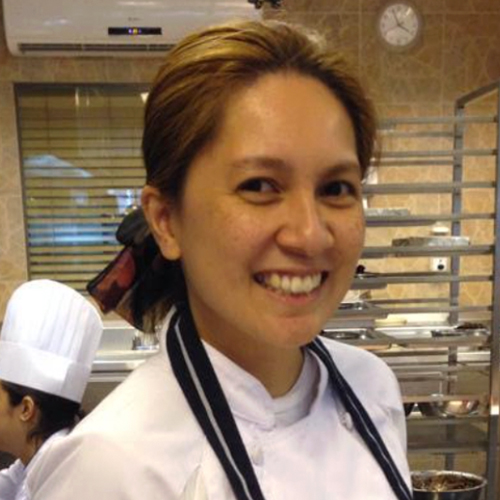About Servsafe
The National Restaurant Association delivers quality training to restaurant and food service professionals.
As the premier provider of educational resources, materials and programs to help attract and develop a strong industry workforce, ServSafe® has been the restaurant industry’s leading association since 1919 and, together with the National Restaurant Association Education Foundation, its goal is to lead America’s restaurant industry into a new era of prosperity, prominence, & participation, enhancing the quality of life for all they serve.
About the Course
ServSafe® is administered by the National Restaurant Association. Servsafe understands the importance of our program in teaching and certifying responsible food service measures.
Servsafe® stays ON TOP OF THE VARIOUS AND CHANGING REGULATORY REQUIREMENTS FOR EVERY STATE AND ENSURE THAT the CERTIFICATION WILL PREPARE one TO IMPLEMENT ESSENTIAL FOOD SAFETY PRACTICES AND CREATE A CULTURE OF FOOD SAFETY.
The ServSafe® program is developed by the National Restaurant Association with the help of food service industry experts who face the same risks you do every day. Your concerns are Servesafe’s concerns.
ServSafe’s years of experience and inside knowledge of the food service industry are at the core of its courses, exams, and materials. The course aims to prepare one to handle food sanitation risks
SERVSAFE® FOOD SAFETY PROGRAM MATERIALS
Servesafe’s materials help define food safety best practices because it involves specialists from regulatory agencies, academia, and the food service industry to create them. ServSafe materials reflect the latest science, research, and FDA Food Code.
EXPERT FOOD SAFETY EDUCATORS
Certified ServSafe Instructors and Registered ServSafe Proctors must meet minimum experience and educational requirements. Students can be confident that practical, real-world experience guides their training.
HOW DOES SERVSAFE® COMPARE?
ServSafe is the leader in food safety training and certification.
Course Outline
Intended Learning Outcomes
Basic Food Safety
Food Protection Managers will be able to identify:
- The definition of foodborne illness and common foodborne illness symptoms
- Biological, chemical and physical hazards.
- Routes of contamination such as people, animals, cross-contamination, air, water, soil, food-contact surfaces and food.
Personal Hygiene
Food Protection Managers will be able to identify:
- How, when, and where to wash their hands.
- How to use gloves correctly and when to change them.
- How to care for your hands and fingernails before handling food.
- What should and should not be worn when handling food.
- Illness symptoms that must be reported to your manager.
- Where you should and should not eat, drink, smoke, or chew gum or tobacco in the operation.
Time & Temperature
Food Protection Managers will be able to identify:
- Food that needs time and temperature control to keep it safe.
- The Temperature Danger Zone.
- How to use a thermometer correctly.
- Requirements for receiving food and non-food items.
- How to control the time and temperature of food during storage.
- How to thaw, cook, hold, cool, and reheat food correctly.
Cross-Contamination and Allergens
Food Protection Managers will be able to identify:
- How to prevent cross-contamination when storing, preparing and serving food.
- Signs that indicate food has been contaminated prior to receiving it.
- How to handle and store chemicals to prevent cross-contamination.
- The Big Eight food allergens and how to prevent them from causing an allergic reaction.
Cleaning & Sanitation
Food Protection Managers will be able to identify:
- The difference between cleaning and sanitizing.
- How and when to clean and sanitize surfaces.
- How to set up and use a three-compartment sink correctly.
- How to use and maintain dishwashers correctly.
- How to handle garbage correctly.
- Signs of pests in the operation.
Intakes
| Deadline for Registration and Enrollment | Dates | End Dates |
|---|---|---|
| February 28, 2025 | March 13, 2025 | March 14, 2025 |
| April 7, 2025 | April 28, 2025 | April 29, 2025 |
| June 2, 2025 | June 19, 2025 | June 20, 2025 |
| August 4. 2025 | August 28, 2025 | August 29, 2025 |
| October 6, 2025 | October 23, 2025 | October 24, 2025 |
FAQs
Are there qualifications to take the ServSafe Food Protection Manager course and assessment?
Are all of my certificates available as an eCertificate?
When do I register?
Does my certificate expire?
What is the format of the ServSafe Food Protection Manager Assessment questions?
What will I receive after I take the ServSafe Food Protection Manager Assessment?
What are the ServSafe Food Protection Manager certificate program purpose, scope and intended learning objectives?
Certificate Program Scope: Individuals who receive a ServSafe Food Protection Manager Certificate have successfully completed a Food Protection Manager Course and have basic and advanced knowledge of the topics covered in the course.
Certificate Program Learning Outcomes: Basic and advanced food safety, personal hygiene, cross contamination and allergens, time and temperature control, and cleaning and sanitation.
If I move, is my ServSafe Food Protection Manager certificate accepted in other states, counties and cities?
What is the passing score for the ServSafe Food Protection Manager Examination?
How does the ServSafe Manager Certification differ from the ServSafe Food Handler Certificate?
The ServSafe Food Handler Certificate verifies basic food safety knowledge and is for individuals in food handler employee-level positions. Upon successful completion of the ANSI ASTM 2659 accredited Food Handler course and 40-question exam, the employee will receive a Certificate of Achievement from the National Restaurant Association that can be printed from a secure section of the website.
What can I do if I do not pass the ServSafe Food Protection Manager Certification Examination and need to retest?
No more than four attempts are allowed within a 12 month period. You will need to purchase a new Exam Answer Sheet to retake a print exam or purchase a new Exam Access Code to re-take an online exam.
I still have some questions. Who can I contact to get more information?
Program Faculty


 menu
menu
